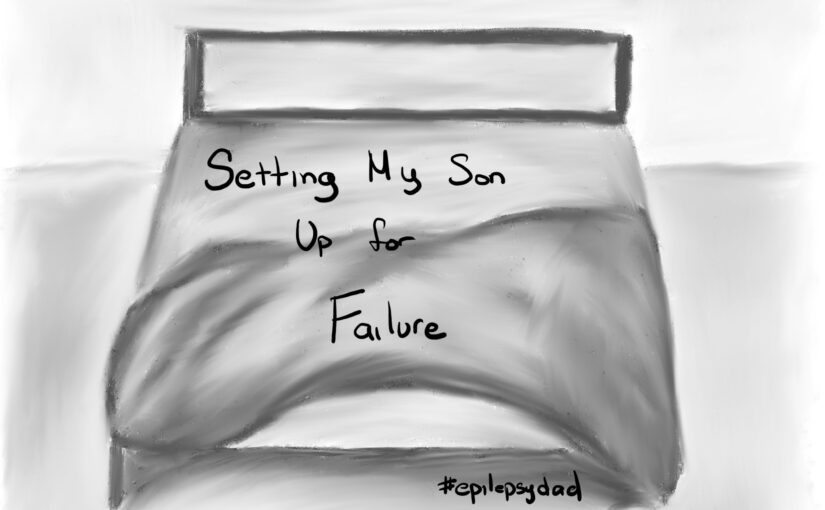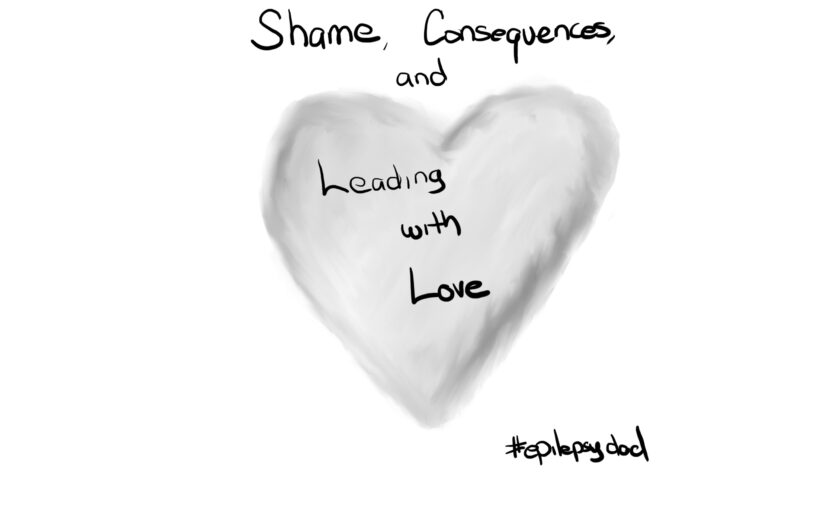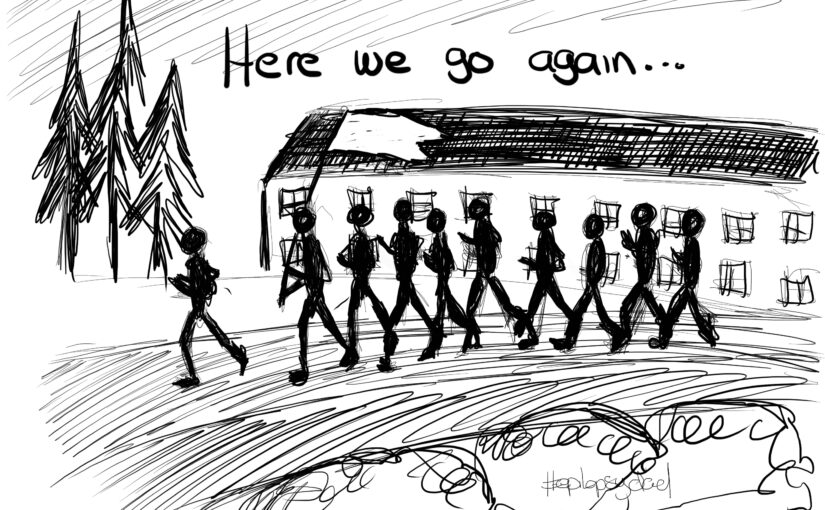The other day, I stepped into my son’s room.
As part of his daily routine, he’s supposed to make his bed, clear off his floor and desk, put away clean clothes, and bring his dirty cups and laundry downstairs. In my head, it’s a simple list—something that should only take a few minutes if he stays on top of it. After all, I’ve been doing those chores and more for a long time.
So when I walked in and saw his bed unmade, things scattered on the floor, and dirty clothes thrown into the closet, I became frustrated. I pointed out what he missed and left him to fix it.
This has become the pattern more often than not. Sometimes, I go back into the room two or three times to point out what still isn’t done. My frustration builds each time.
The thing is, I know he’s not lazy, and I know he’s trying. He has trouble staying focused and on task. So when I leave him to figure it out on his own and keep coming back with corrections—even if I think I’m helping—I’m creating a spiral. He winds up feeling frustrated, too. Worse, it can make him feel like a failure.
Part of the world we’re navigating is learning to manage our expectations. In areas where we know he struggles—like reading—we’ve been given guidance on how to set the bar. We can offer support, recognize his effort, and celebrate what he accomplishes.
But I forget to apply that same mindset when a task seems “simple” to me or when I think it’s something he should be able to do. That’s especially true with everyday life skills like tidying up, cleaning after himself, or remembering to shower. I get so caught up in what it might mean if he can’t do those things that I lose sight of how it must feel to him that they’re difficult in the first place.
My experiences aren’t his experiences. What seems easy or hard to me doesn’t always match how he perceives the same task. And when I forget that, my intention to “teach him responsibility” ends up doing more harm than good.
It’s easy to celebrate accomplishments when the expectations are clearly set—or when he does something I know I couldn’t do myself. When he solves a difficult math problem, or stands in the box with two strikes and gets a hit, we cheer him on and pat him on the back.
It’s much harder to pause my fear and frustration in the everyday moments. But those moments matter, too. Because even if we’re quick to celebrate his wins, how we respond to his struggles will shape how he sees himself. That’s one of my experiences I explicitly don’t want to pass on to him.
But, as they say, awareness is the first step.
That day, after I saw what was left undone, I didn’t just point it out again. I sat on his bed and asked him to sit next to me. The look on his face told me everything.
“It must be really frustrating,” I said, “when I come in here and tell you the room’s not done, and then leave you to figure it out.”
“Yes.” His head and shoulders sank lower.
“I’m really sorry I didn’t recognize that sooner. How’s this: What if we do your room together? Every day, after school, you and I will come in here and get it done. That way, you’ll see what I mean when I ask you to clean it, and you won’t be left alone to figure it out. Would that help?”
His head lifted, and I saw him breathe a little easier. “Yes,” he replied.
“Let’s do it,” I said as I stood and helped him to his feet.
It hasn’t been long, but I can already see the difference in his attitude when we do it together. The task may still be hard—but he’s not doing it alone.
It’s not about lowering the bar. It’s about meeting him where he is. And that makes all the difference between setting him up for failure and setting him up for success.


